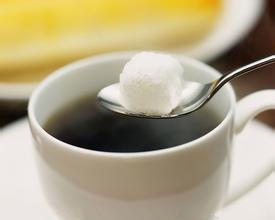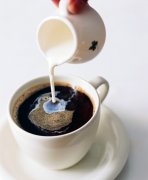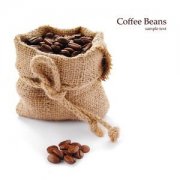Caffeine is the most eye-catching of all the ingredients of coffee.

Caffeine:
Caffeine is the most eye-catching of all the ingredients of coffee. It belongs to one of the plant xanthamins (animal muscle components).
The properties are the same as theobromine in cocoa and theophylline in green tea, the percentage reduction after baking is very small, and caffeine plays a very important role.
Extensive, will affect the human brain, heart, blood vessels, gastrointestinal, muscle and kidney and other parts, the right amount of caffeine will stimulate the brain
Layer, promote sensory judgment, memory, emotional activity, make myocardial function become more active, dilate blood vessels, enhance blood circulation, and improve new
Metabolic function, caffeine can also reduce muscle fatigue and promote digestive juice secretion. In addition, because it also promotes kidney function to help the body.
The excess sodium ions (chemicals that hinder the metabolism of water molecules) are excreted out of the body, so caffeine does not increase with diuresis.
Like other narcotic and excitatory substances (narcotic drugs, paint solvents, stimulants, etc.) accumulate in the body for about two hours.
Will be excreted. The biggest bitterness of ─ in coffee flavor is caused by caffeine.
Tannic acid:
After extraction, tannic acid will turn into a yellowish powder, which can easily blend into water. After boiling, it will decompose and produce Jiao Wu.
Sour, which makes the coffee taste worse, and if the coffee is soaked and left for several hours, the color of the coffee will become stronger than when it was first soaked, and it will also be less intense.
It tastes good enough, so there is the saying that "it is best to drink it as soon as possible".
Fat:
The fat in coffee plays a very important role in flavor. After analysis, it is found that there are many kinds of fat in coffee.
The most important of these are acidic fat and volatile fat. Acidic fat refers to the presence of acid in fat, which varies according to the type of coffee.
Different, volatile fat is the main source of coffee aroma. The fat contained in roasted coffee beans will melt once it comes into contact with the air.
If you change the taste, the smell will get worse.
Protein:
The main source of calorie is protein, and like coffee brewed by dripping sauce, the protein probably won't dissolve out, so coffee
No matter how much you drink coffee, the amount of nutrition you get is limited, which is why coffee will become a sacred product for dieters.
Sugar:
Without sugar, you will not only feel the bitterness of caffeine and the sour taste of tannin, but also feel the sweet taste, that is, coffee.
Caused by the sugar contained in itself. After baking, most of the sugar will be converted to caramel, bringing a unique brown to the coffee.
Minerals: lime, iron, sulfur, sodium carbonate, phosphorus, chlorine, silicon, etc., because the proportion rarely affects the flavor of coffee.
Large, taken together, brings only a slight astringency.
Crude fiber:
The fiber of raw beans is carbonized after baking. This carbon and caramelization of sugar combine with each other to form the hue of coffee, which can be turned into powder.
The final fiber will have a considerable impact on the flavor of coffee. Therefore, we do not encourage the purchase of powdered coffee beans because they are more difficult to taste.
The flavor of coffee.
The bitter mellow aroma of coffee:
The color, aroma and taste of coffee are caused by some complex chemical changes that take place during the baking process. So Sheng
Beans must go through a proper chemical process to achieve the most balanced state of its necessary ingredients in order to be regarded as the best baked beans. Coffee
The aroma of coffee will change with the heat, so the baking time should be shortened as much as possible, and the heat should be controlled to allow coffee beans to produce effective chemical composition.
The minimum temperature, that is, the shortest process time and heat, allows coffee beans to produce the most suitable ingredient ratio.
Aroma:
Aroma is not only the life of coffee quality, but also the best expression of coffee production process and roasting technology, climate, elevation and product of the place of production.
Species, refined treatment, harvest, storage, and the appropriateness of the baking technology of the consuming country are all conditions that determine the aroma of coffee beans. Coffee.
The results of gas chromatographic analysis showed that the aroma was composed of acids, alcohols, acetaldehydes, ketones, esters, sulfur compounds, phenol, nitrogen compounds, etc.
It is composed of nearly hundreds of volatile components. Generally speaking, fat, protein and sugar are important sources of aroma, while lipid components
It will be mixed with the sour and bitter coffee to form a smooth taste. Therefore, the disappearance of fragrance means the deterioration of quality, the relationship between aroma and quality.
Extremely close.
Important Notice :
前街咖啡 FrontStreet Coffee has moved to new addredd:
FrontStreet Coffee Address: 315,Donghua East Road,GuangZhou
Tel:020 38364473
- Prev

Coffee to lose weight can circle to order coffee to lose weight healthily
I believe many people have the habit of drinking coffee, and they also know that coffee can be refreshing. In the last year or two, it has been popular in Europe and the United States to drink a kind of coffee drink called curve slimming, which reduces appetite by inducing heat, which is safe and does not cause weight gain. If you've tried countless diets and failed to get to your ideal weight, try this convenient and quick way to drink coffee and lose weight.
- Next

The origin of cappuccino name boutique coffee common sense
Viennese Fanz George Kolschitsky, the founder of Cafe Latte with Milk and Coffee, will talk about the origin of Cappuccino in this issue. Both drinks are made from coffee and milk, but cappuccino has a more knowledgeable origin and has always been the best material for the study of character changes in Europe and the United States. The history of the word Cappuccino is enough to explain
Related
- Beginners will see the "Coffee pull flower" guide!
- What is the difference between ice blog purified milk and ordinary milk coffee?
- Why is the Philippines the largest producer of crops in Liberia?
- For coffee extraction, should the fine powder be retained?
- How does extracted espresso fill pressed powder? How much strength does it take to press the powder?
- How to make jasmine cold extract coffee? Is the jasmine + latte good?
- Will this little toy really make the coffee taste better? How does Lily Drip affect coffee extraction?
- Will the action of slapping the filter cup also affect coffee extraction?
- What's the difference between powder-to-water ratio and powder-to-liquid ratio?
- What is the Ethiopian local species? What does it have to do with Heirloom native species?

